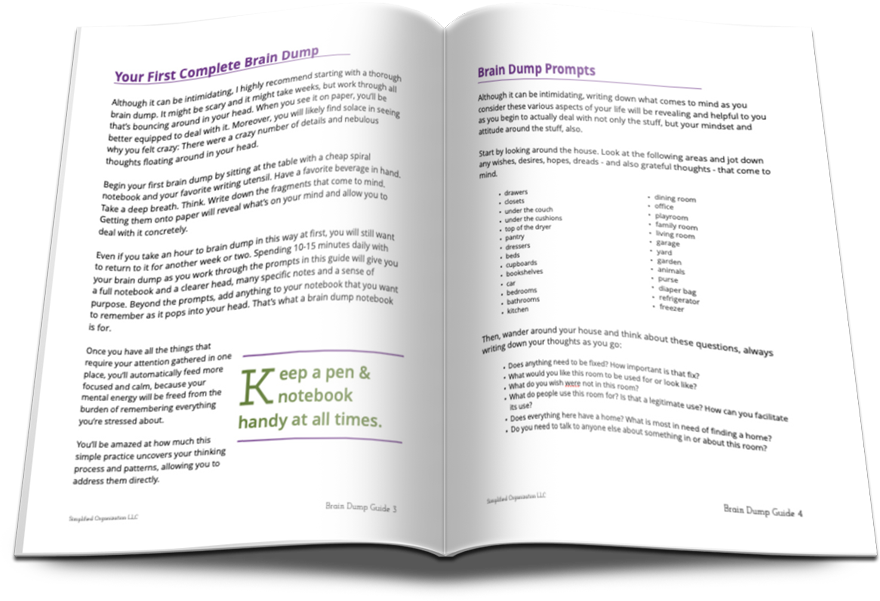This summer I was browsing CiRCE’s writing program, The Lost Tools of Writing, as I built out my plan for my own lit and writing class. I don’t use the curriculum, but I did skim it for ideas.
And, ideas, it turns out, are what it emphasizes (not surprising, if you know CiRCE).
Ideas are the real tools of writing, more than grammar or outlining. Without ideas, there cannot be good nor clear writing.
And the same is true of life.
We browse magazines and Pinterest and blogs looking for the tools we’re missing to do this life thing better. We feel we’re missing something, and we think that if we find what we’re missing, suddenly everything will fall into place and be easier.
We might be missing something, but if we find it, life won’t get easier, it will get simpler.
It will be simple because we will see what we need to do. Doing it, however, will always require effort. Simplicity comes from having a small number of powerful guiding principles. Ideas.
The rest of our life, then, becomes a process of growing into those ideas, of putting the principles into practice.
I have called homeschooling “apprenticing my children in life,” which I love as a guiding principle. It’s about living the Good Life: with all the good ideas, good books, and good works that implies.
But I am also apprenticed in life myself. I am no master to apprentice others, not really. I also need to stay under discipline, under guidance, of ideas and principles and masters – or the Master.
Education, apprenticeship, is simply good living, not merely school for children. It is for us all.
We are all – or should all be – continually learning and growing.
“The noblest pleasure is the joy of understanding.” – Leonardo DaVinci
The Lost Tools of Writing says that a true student
- is intensely devoted
- is effectively instructed
- demands tools and technique
Are we students of life ourselves?
Do we remain intensely devoted to fulfilling our calling, are we seeking to be effectively instructed, do we demand tools and techniques that will help us grow in faithful application of living ideas and guiding principles?
Or are we looking for tools and techniques that will bandaid over our shortcomings and make us look good to others?
The tools and the techniques are often what we focus on finding, because we’re looking for easy answers. However, even once found, we find that the tools and techniques don’t matter if we don’t use them. Bummer.
Mastery, faithfulness, is actually more about our habits than about tools, techniques, or goals. That means it’s actually about discipline.
From The Lost Tools of Writing:
[pullquote align=”center”]
“A writer attains mastery of his craft when he masters the tools of that craft, and he gains mastery through discipline, focused attention, and good habits.”
[/pullquote]
Andrew Kern, here, is saying that the tools of writing are ideas acquired though
- discipline
- focused attention
- good habits.
And he’s right. And the same is true of mastery in life, as well. The tools of living life well are ideas acquired through
- discipline
- focused attention
- good habits.
We tend to think of ideas as being esoteric and impractical, but every action we take is the logical consequence of an idea, a thought, we had. Ideas come out our fingertips, and what comes out our fingertips are our actual guiding principles.
So we learn true guiding principles not just by knowing them in our heads, but by practicing them through discipline, focused attention, and good habits.
That is when the ideas become real, when they become virtue. That is when we become educated.
[pullquote align=”center”]
The end of education is not thinking; it is acting. It is not just knowing what to do; it is doing it. – David Hicks, Norms & Nobility
[/pullquote]
As you look back on this last year, what ideas grabbed you? How do you live them out? How can you live them out more and more?
As you look forward to a new year, what ideas do you want to embody more and more? What do you want to give discipline, to focus attention, to make habit?
Tell me in the comments!
Up next: Practicing biblical homemaking
Dump all those swirling thoughts out of your head.
Yes, simply writing it all down will help to
- Reduce stress by getting your thoughts onto paper
- Reduce frustration by assigning homes to stuff, tangible & intangible
- Reduce anxiety by knowing what you have on your plate

